Muslims of Batumi: the fight for a new mosque
The Muslim community of Adjara has been trying to obtain permission to build a new mosque for a while now. As of today, there is only one mosque in Batumi, but Muslims make up 25 percent of the city’s population.
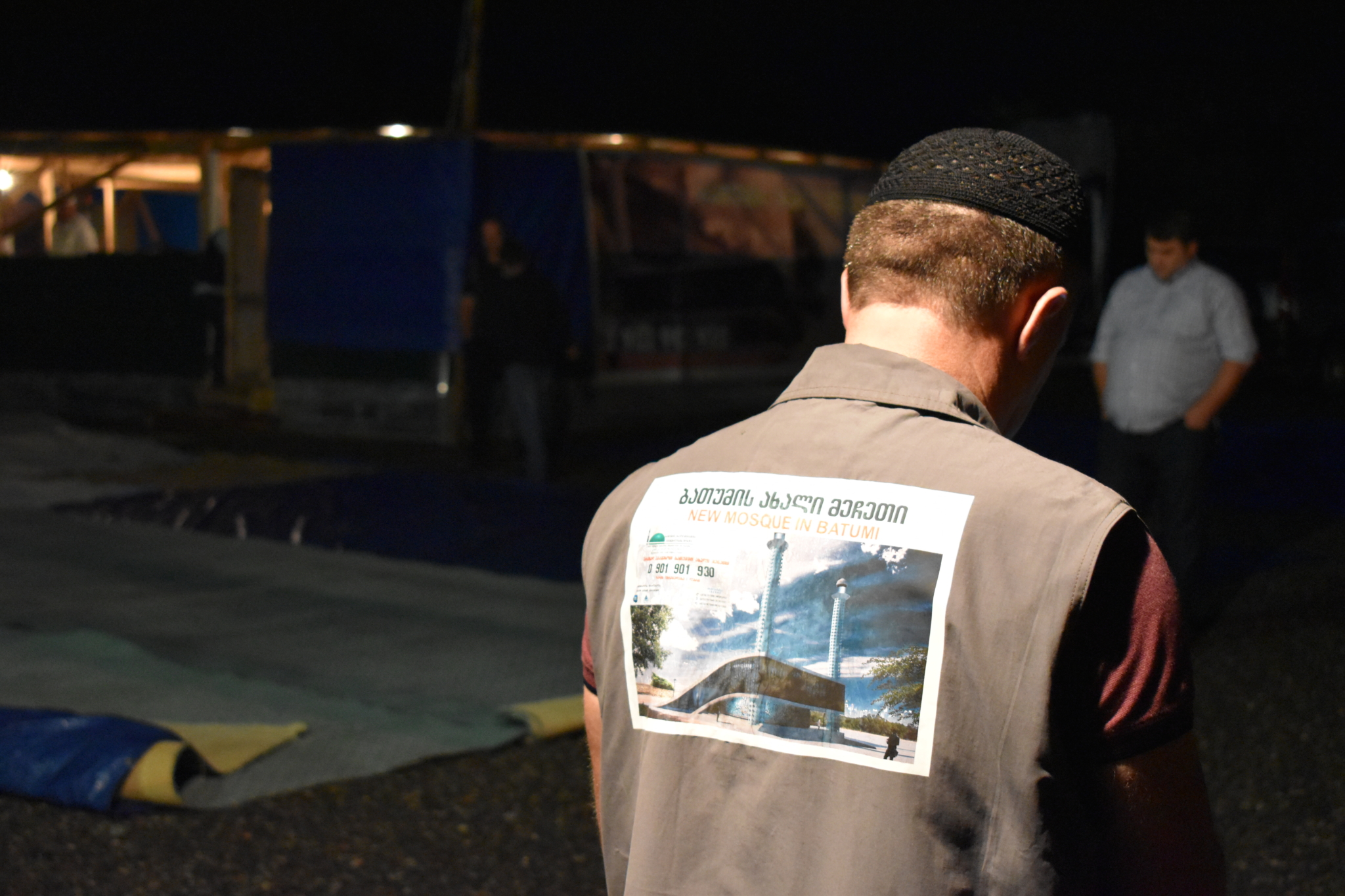
“Help with the construction of a new mosque! Enough praying on the streets!”.
Such calls for action can be heard in the Batumi mosque at the conclusion of every Friday prayer. And so it was on 25 August: mosque-goers who came early to Friday prayer were able to secure themselves a spot within the mosque.
The rest rolled out carpets on the pavement: some in the mosque’s courtyard, and others right in the street.
Batumi’s Muslims have long been used to praying in the street.
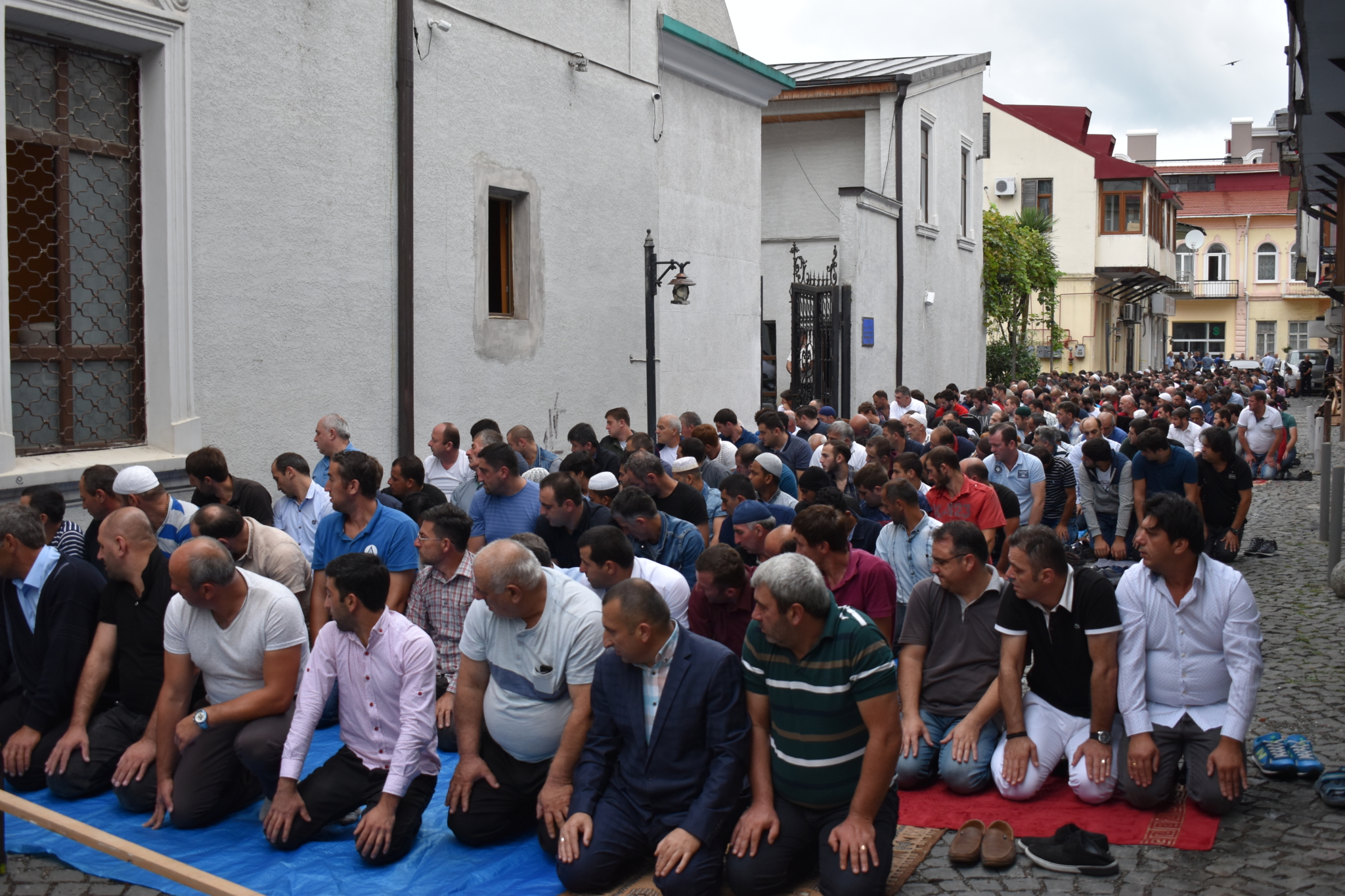
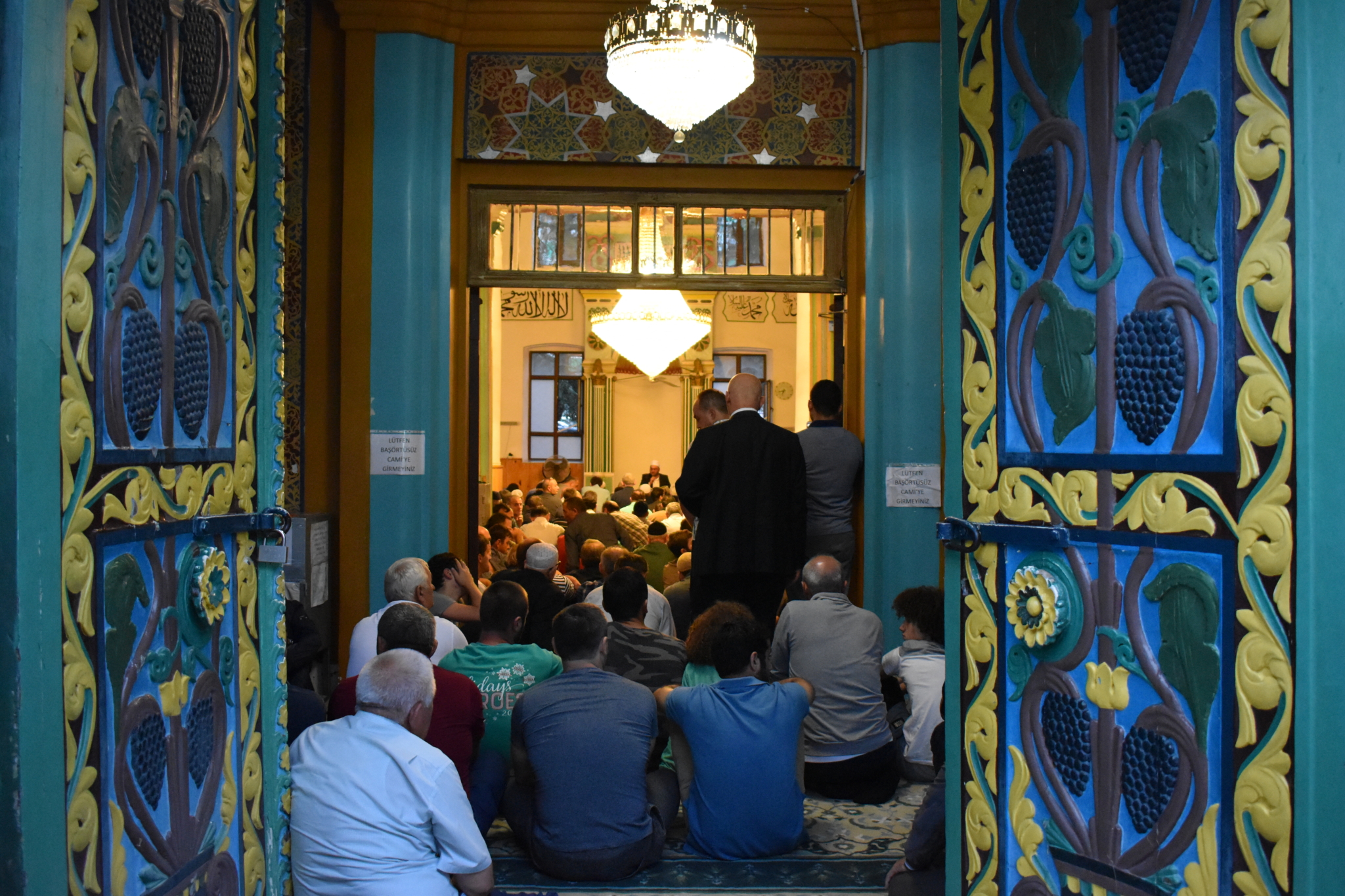
According to the 2014 census, there are around 334 000 people living in Adjara, of which 133 000 are Muslims. Batumi, which has a population of 150 000 people, of which around 39 000 are Muslims.
Up until 1878 Adjara was a part of the Ottoman Empire for three centuries, during which the majority of the population converted to Islam. In the 1990s, during the collapse of the USSR and the renaissance of the national movement, many Adjarans converted to Christianity. In recent years, Turkey’s influence can be easily felt – especially that of its economic presence.
Because of the historical context, many in Georgia feel suspicious of Turkey’s presence in the west of the country, and this is further encouraged by the open anti-Turkish rhetoric of several politicians and parties.
The Muslim community grows by the year, largely due to new-comers who arrive in the city from mountainous Adjara, where the majority of the population is made up of Muslims. Moreover, in recent years, the youth have started to attend the mosque and Muslim ceremonies more and more.
As of today, there is only one active mosque in Batumi: Orta Jami, which was built in the 19th century. According to representatives of the Muslim community, it doesn’t even accommodate half of those that come to worship.
Georgian Muslims have for years been requesting a new building for a mosque. However, their request has been met with many obstacles both from the authorities and from the Orthodox church, which is the most influential organization in Georgia.
For several years there were negotiations between Georgia and Turkey concerning the restoration of Georgian monuments in Turkey and the same for monuments from the Ottoman times in Georgia, including the rebuilding of the Azize Mosque in Batumi. This plan gave rise to a protest from the Georgian Orthodox church and parts of the public.
Afterwards the Georgian authorities promised to build a new mosque in Batumi with funds from the Georgian budget. However, this plan also did not come to life. The resolution of the issue has taken years and no one is hurrying to bring it to an end.
“This is the story of a 20-year-old fight,” says Tariel Nakaidze, the deputy chairman of the Georgian Muslim Union, a non-govermental organisation.
“Back in the days of Eduard Shevardnadze (the second president of Georgia from 1992 – 2003) and Aslan Abashidze (the head of Adjara from 1991 – 2004), muftis would write letters to the authorities with the request to build a new mosque. Back then, this issue wasn’t openly spoken of.”
The mosque that doesn’t exist
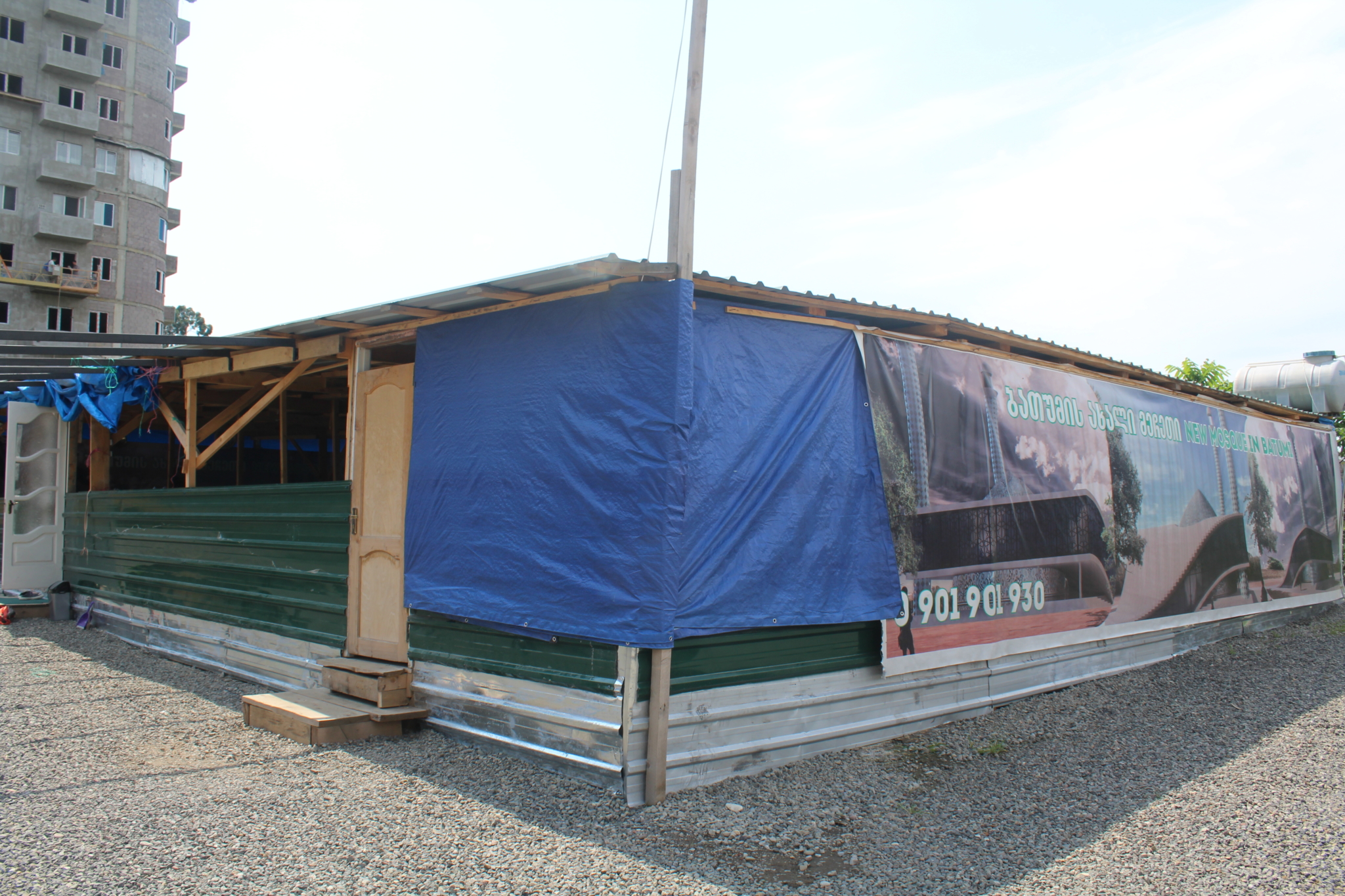
On the outskirts of Batumi on Abashidze Street is a collection of boards with a tin roof. If it weren’t for the colourful banner which announces that it is the ‘new mosque of Batumi’, one could mistake it for a trade tent.
On 1 September, during Eid-e Qurban, there were many people here. There were about 1 500 people under the tin awning and in the surrounding territory.
This is the place where Muslims had intended to build the new mosque, however the municipal authority did not give them permission to construct it.
The formal reason given for the refusal was that the district is a residential area, therefore the city would prefer not to build ‘religious structures and places of mass gatherings’ there. At least, this was the official reason put forward and signed by the mayor of Batumi, Georgi Yermakov, on 5 May 2017.
Despite the ban on the construction, the Muslim community ‘opened’ the site for worship on 26 May.
Today, the site is an active chapel, where believers gather on Fridays for prayer.
The piece of land on which the ‘new mosque’ has been built was bought by the Muslim community with its own funds as it did not wait for land to be given to them by the government. The community started collecting money at the beginning of 2015 as a result of signatures gathered in a petition to build the new mosque. In just two months they gathered 12 000 signatures and a large sum of money.
As a result, a 2 500 m3 piece of land was bought for 400 000 US dollars from a local resident, who gifted the community another 500 cubic meters of land.
Tariel Nakaidze says that these expenses placed a heavy burden on local Muslims, but as of today the sum has almost entirely been paid off.
The fact that the mosque was bought with money collected by the Muslim community was another argument that opponents have used against its construction. In particular, opponents feel that the mosque was secretly funded by Turkey.
In response to this, Tariel Nikaidze says that he is ready to account for the mosque’s expenses down to the last tetri.
Aside from large donations, the collection of funds continues every Friday after prayer. On 25 August, the mosque collected 878 lari (350 US dollars) in a cardboard box.

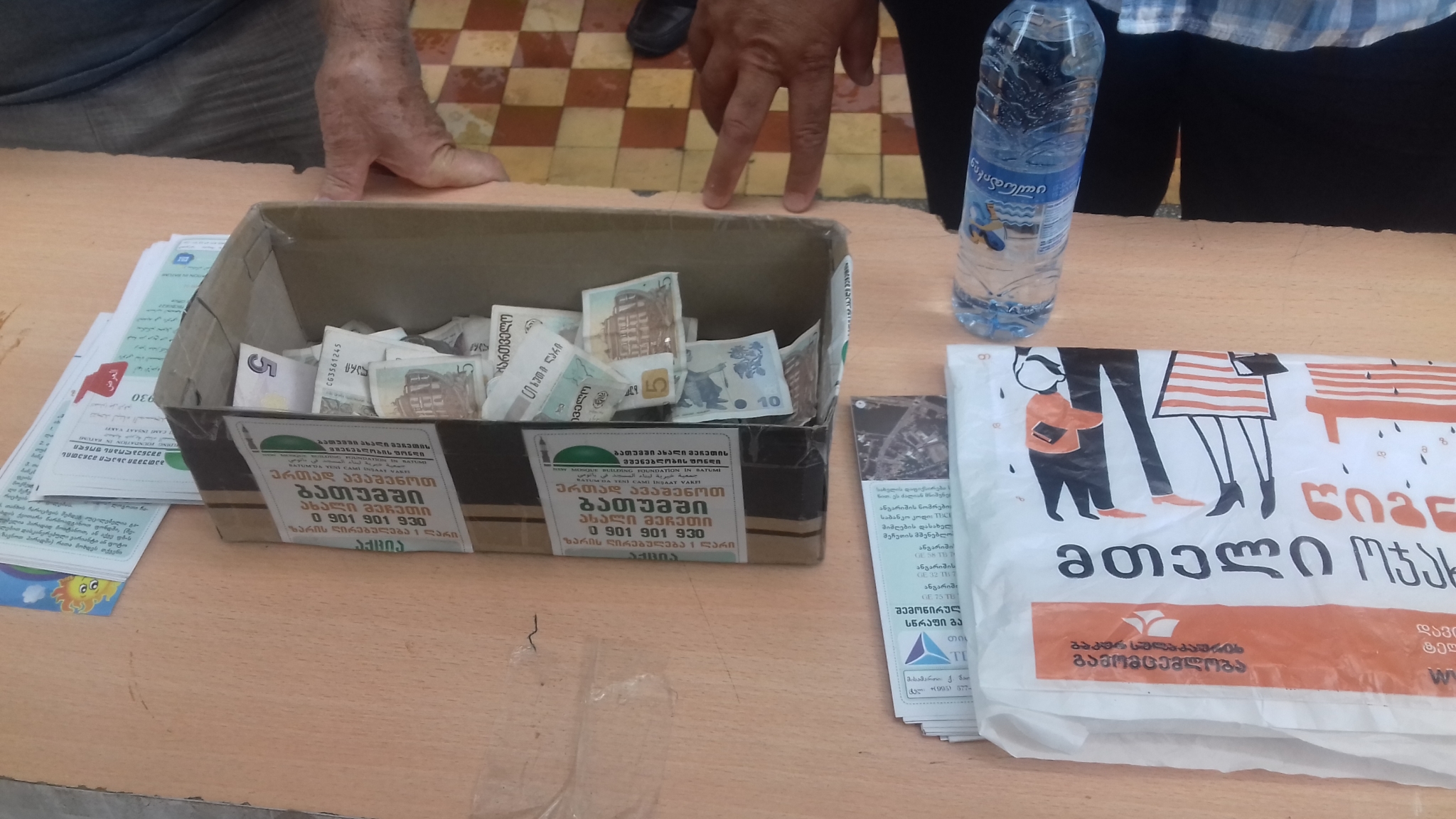 Collection of donations for the construction of the new mosque in Orta Jami mosque, Batumi, 25 August, 2017
Collection of donations for the construction of the new mosque in Orta Jami mosque, Batumi, 25 August, 2017
However, it is still unknown when the community will be able to begin the construction of the mosque. They have appealed in court regarding the the rejection of their former request to build a mosque, but litigation may continue for years.
Position of the authorities
Representatives of the authorities, including Presidents and Prime Ministers, often visit the Orta Jami mosque. All governments over the past 20 years have given occasional hints that they will allow them to construct a new mosque in Batumi: these nebulous promises were largely made during Muslim holidays.
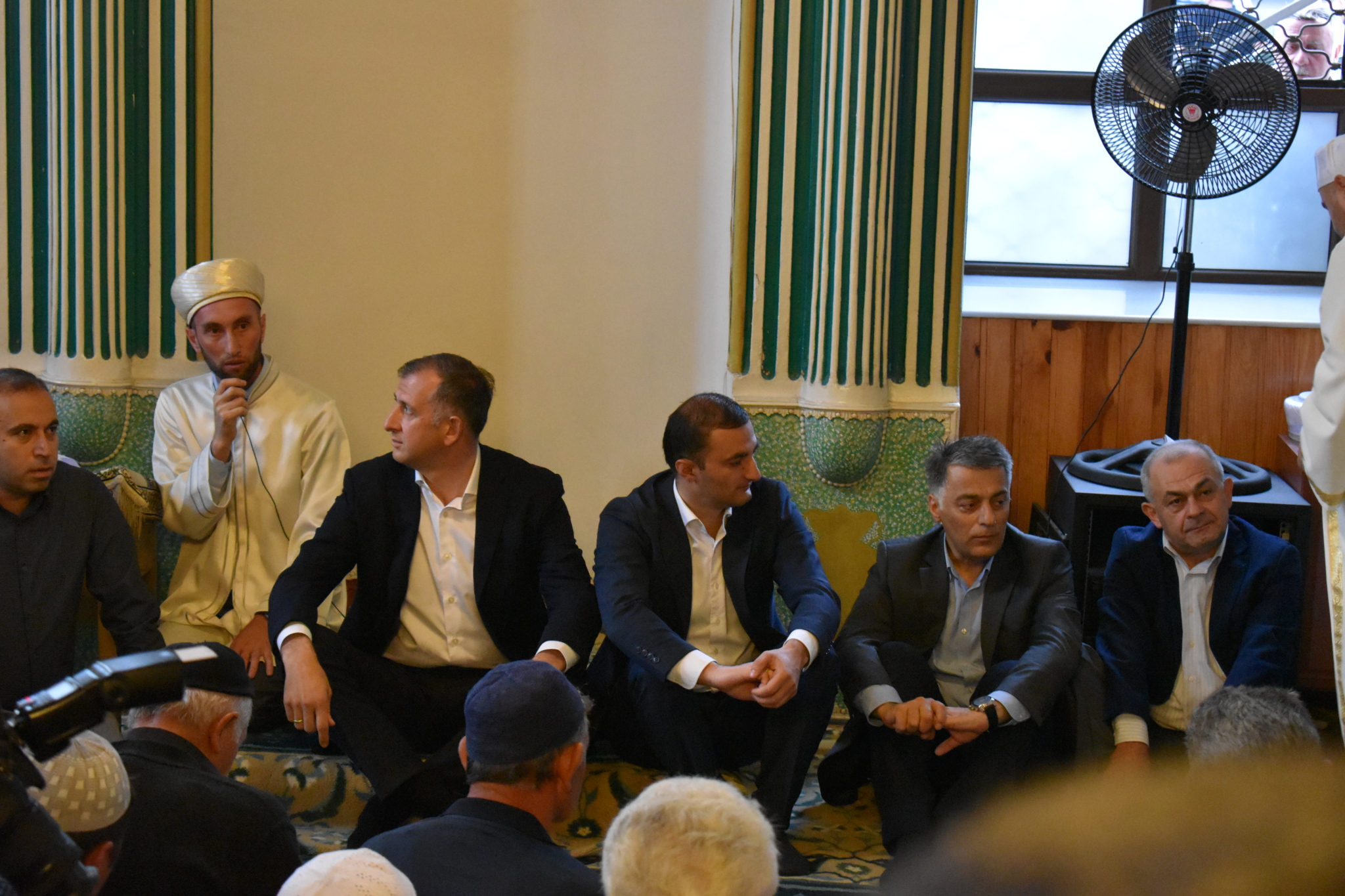
In 2013, the then Prime Minister Bidzina Ivanishvili outright stated that he supported the construction of the mosque and was even ready to finance it himself. However, this promise was not carried out. Lately the billionaire rarely appears in public and representatives of the Muslim community have been deprived of the opportunity to remind him of his promises.
This year, Muslims invited the head of the Adjara government to the ‘new mosque’, and not to Orta Jami.
However Zurab Pataradze went to the old mosque, where he stated that ‘consultations with the Muslim community, muftiyat and the municipal authority were being conducted’ for the construction of the new mosque and that they were ‘already at the last stage [of discussions]’.
According to him, all that is left is the coordination of several technical details.
However, Muslims received these ‘encouraging’ remarks sceptically, as Pataradze had made similar promises several months earlier, and for that reason many believe that his words are only an attempt to buy some time.
“They think we are idiots. But we are thinking of our homeland and for that reason we tolerate such an attitude,” a middle-aged man in the courtyard of the ‘new mosque’ told us.
Ioseb Abashidze, slightly older, was less reserved and said that the authorities were ‘suffocating’ and ‘oppressing’ Muslims.
“We are wrestling with the authorities, the press and the clergymen. Priests have come and told us, ‘we don’t want this here’. Who are you to say what you want or don’t want in my courtyard? We aren’t guests here. We haven’t taken loans from anyone. We aren’t refugees. This is our land and we will live here as we will. We are not getting in the way of the government – let them not get in our way either,” says Abashidze.
In addition to the constant delays, the authorities have found another way to ‘solve’ the problem: they try to control the official religious institutions of Muslims and appoint muftis themselves.
‘Official’ Muslim spiritual leaders receive a state salary, which often leads to a split between them and the community.
This split came up in the matter of the construction of the mosque as well. In 2014, the mufti of western Georgia and 22 spiritual leaders sent a letter to the state in which they affirmed that they do not support the construction of a new mosque in Batumi.
Instead, they asked for the construction of a new residence for the muftiyat and a repair of the local madrasah (religious school) and three active mosques in Adjara.
This incident was preceded by a visit to Orta Jami by the then Prime Minister, Irakli Gharibashvili. Representatives of the Muslim community maintain that pressure was placed on mufti and other leaders of the community.
Tariel Nakaidze thinks that the muftis could not stand the pressure of the authorities.
“From a theological point of view, this was a catastrophe for them: one cannot pray with a mufti who is against the construction of a mosque,” explains Nakaidze.
Representatives of the Muslim community of Adjara, Ramaz and Muhammad Yakobadze believe that the new mosque is absolutely necessary.
The church is the main opponent
The Georgian Orthodox Church is the most influential and strongest opponent of the construction of the mosque in Batumi.
And one of the most influential of its representatives in Batumi and Laz Metropolitan, Dimitri, was the organizer of protests in 2012 which attracted several thousand people. He is the nephew of the Catholicos Patriarch of Georgia, Ilia II. The Metropolitan sees an external threat in the mosque emanating from the Turkish lobby.
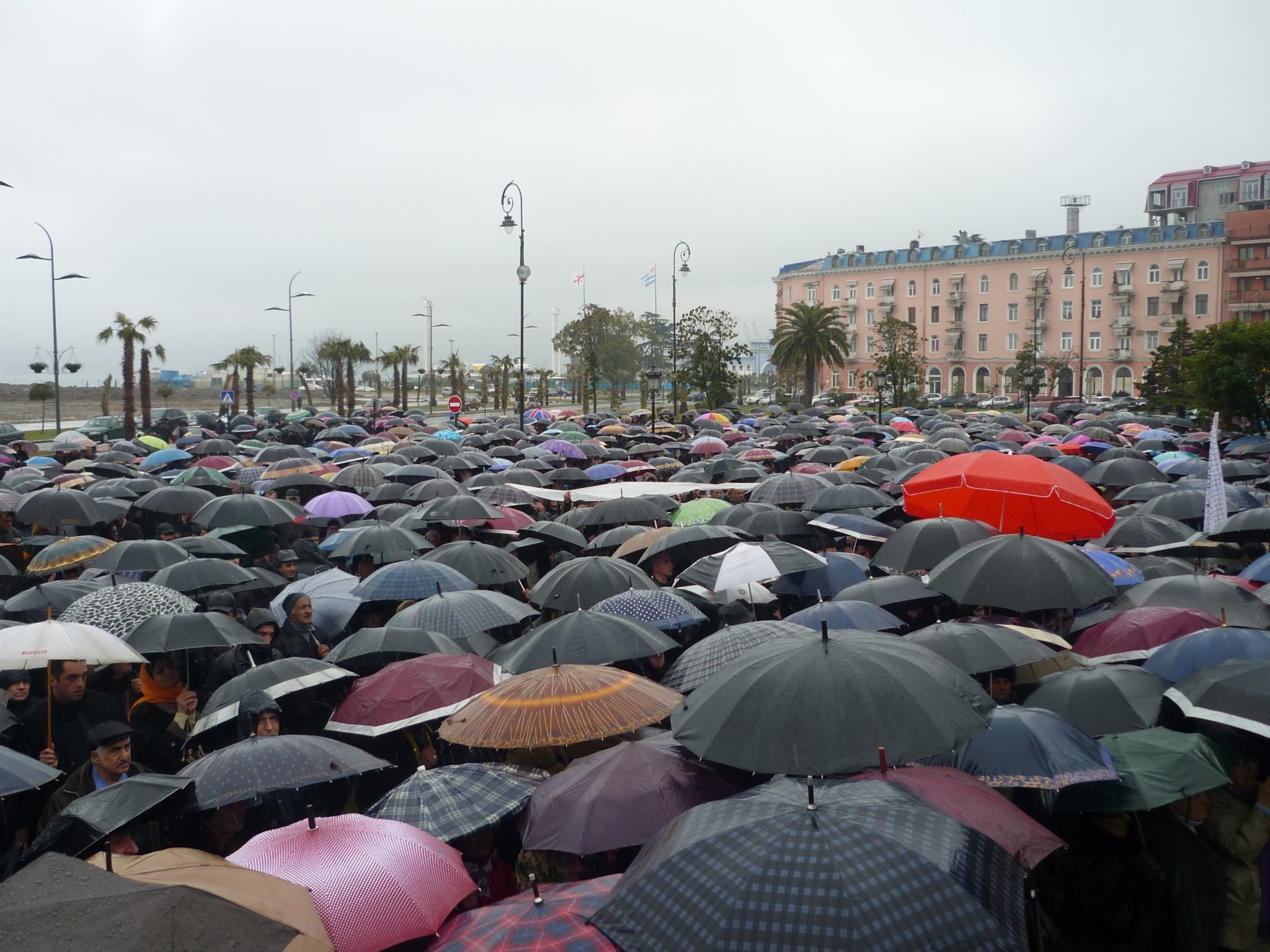
In one of his statements, Dimitri denied allegations against him of violating the rights of Muslims.
“They [Muslims] often say that Christians use their privileges to build temples and so on. But I want to tell you that the proportion of mosques to churches in Adjara is 200 to 50. In Adjara there are only 50 churches. So no one can say that we are privileged.”
Muslims in turn say that Christian priests are the main opponents of the construction of the mosque.
“No one except the Orthodox priests came to us and demanded that we stop praying in the new mosque. Churches are being built, but do any Muslims go to them and ask them to stop praying? If I want, I’ll go pray in a church. If I want, I’ll go pray in a mosque,” said a representative of the Muslim community, Viktor Iremadze.
The main argument of the opponents of the mosque is the growing influence of Turkey, and respectively, the danger of Islamization and the loss of identity. Zaza Pirtskhalaishvili works at a television station in Adjara and regularly participates in protests against the construction of the mosque. According to him:
“Because of the interference of Turkey and the incompetence of authorities, people have again turned to Islam; [it would seem] history has taught us nothing.”
According to him, the authorities must act for ‘traditional Georgian values’ in order to get out of this situation. Additionally, the education system must be developed in order to ‘correctly deliver Georgian values to the youth’.
Representatives of the Christian society of Batumi, Luiza Beridze and Tamta Tebidze, believe that the new mosque threatens national identity.
“First and second-class citizens”
In a US State Department report on the freedom of religion which was published on 15 August 2017, the unresolved problem of the Batumi mosque was brought up. The report says that representatives of the Muslim community have been praying for years on the street, and the authorities have not been able to solve this issue which is very difficult for Muslims.

Influential NGOs of Georgia say that the decision of the municipal authorities of Batumi to ban the construction of the mosque is illegal.
The head of the Center for Tolerance of the People’s Defender of Georgia and theologian Beka Mindiashvili says that the interference of the state in the question of the new mosque in Batumi is due to two reasons.
“This is the negative position of the patriarchate of the Georgian Orthodox Church, and the naive phobias of representatives of the current authorities which are connected to the influence of Turkey in Georgia.”
“Unfortunately, the authorities see their own citizens as conduits of the interests of a foreign state,” says Mindiashvili. According to him, the constitution gives the Muslim population the right to build mosques, and a situation in which ‘human rights are not guaranteed and the state divides its own citizens into first and second class’, is much more dangerous than the influence of a foreign state.”
“The municipal authorities said that we will not be able to open the mosque, but we opened it,” says the deputy chairman of the Georgian Muslim Union Tariel Nakaidze.
“Now we are trying to obtain permission from the government to construct the mosque. If nothing comes from the legal route, we will use other means. Not a single mosque was built in Adjara with the permission [of the government], and so it will be this time around.”


















